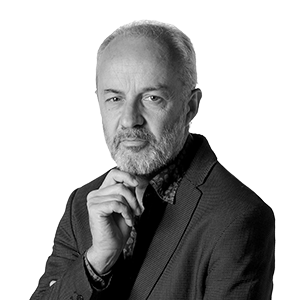Mamdani, Trump and communism


In 1982, Hans Magnus Enzensberger proposed an ironic hypothesis about "underdevelopment as the highest stage of socialism." He was referring to communism, nothing like the social democracy championed by New York's new mayor, Zohran Mamdani. A few years after Enzensberger's insightful observation, the joke was over: in 1989, the Berlin Wall fell. Finally, East Germans, and after them the citizens of all the Soviet republics, could escape the prison that a communist world marked by scarcity, bureaucracy, terror, waste, disinformation, and an inability to innovate had become. Nothing worked; everyone was working for themselves. It was the end of totalitarian societies that, through terror, had guaranteed themselves fanatical support or passive loyalty. The fall of communism seemed definitive and total. But history is never linear.
In the essay What was communism? (Editorial Asuntos, translated by Gustau Muñoz), the German historian Gerd Koenen (Marburg, 1944) dissects the ideology supposedly inspired by Marx—finding more religious traits than egalitarianism—and examines what remains. If the aim is to establish "a historical genealogy, it wouldn't be one that says: Marx produced Lenin, Lenin produced Stalin, Stalin produced Mao, but rather: Lenin appropriated Marx, Stalin mummified Lenin, Mao replaced Stalin," Koenen writes. Looking at the present, I'll offer a preliminary conclusion: Russia looks backward; China looks forward. But amnesia has served them well in both cases.
The Soviet world collapsed suddenly, yes, but there wasn't a single trial, no Nuremberg trial for the Stalinist mass murderers. Justice has not been served. And now Putin is rehabilitating Stalin: a high relief was recently unveiled in a central Moscow metro station. In Russia, there are at least 120 monuments dedicated to the dictator. Of these, 105 have been erected during Putin's presidency, and most of them after the annexation of Crimea in 2014. School textbooks present Stalin as a beloved figure who did everything to win the Great Patriotic War—that is, the victory over Hitler. A nationalist, not communist, victory.
Today, the post-communist authoritarian and oligarchic Russian regime and the People's Republic of China, marked by an anti-democratic state capitalism, exert an undisguised attraction on the heads of state of the world's two largest democracies, Trump and Modi, who would like to rule by decree. Putin's Russia presents itself as a bastion of traditional values: family, nation, state, masculinity, religion, and a rather warlike stance. It contrasts itself with a decadent West. Xi's China promises super-development, a harmonious "Chinese Dream" as a counterpoint to the outdated American Dream
China remains nominally a people's republic under the leadership of the Communist Party. But Deng Xiaoping was far more reformist than Gorbachev. He evolved the regime from within, dissolving, for example, the compulsory commons and allowing peasants to return to production according to family and local methods, thus unleashing enormous economic and social potential. A rural auxiliary industry emerged, and foreign capital was permitted. Communism was transformed into state capitalism and has continued to evolve.
If communism, as Koenen says, was above all a nationalist reaction against the advance of a globalizing capitalist market, a reaction that fell into and believed in a pre-modern despotism (Stalin was inspired by Ivan the Terrible, and Mao presented himself as a popular emperor for wool, and Putin, anchored in a nostalgic nationalism, strives not to be left out).
The fascination for decades of a part of the West—the progressivism that dominated the cultural world—with the Russian and Chinese communist experiments has now become a fascination of a part of the West—the populist far right that dominates the media world—with the strong regimes that have emerged.
